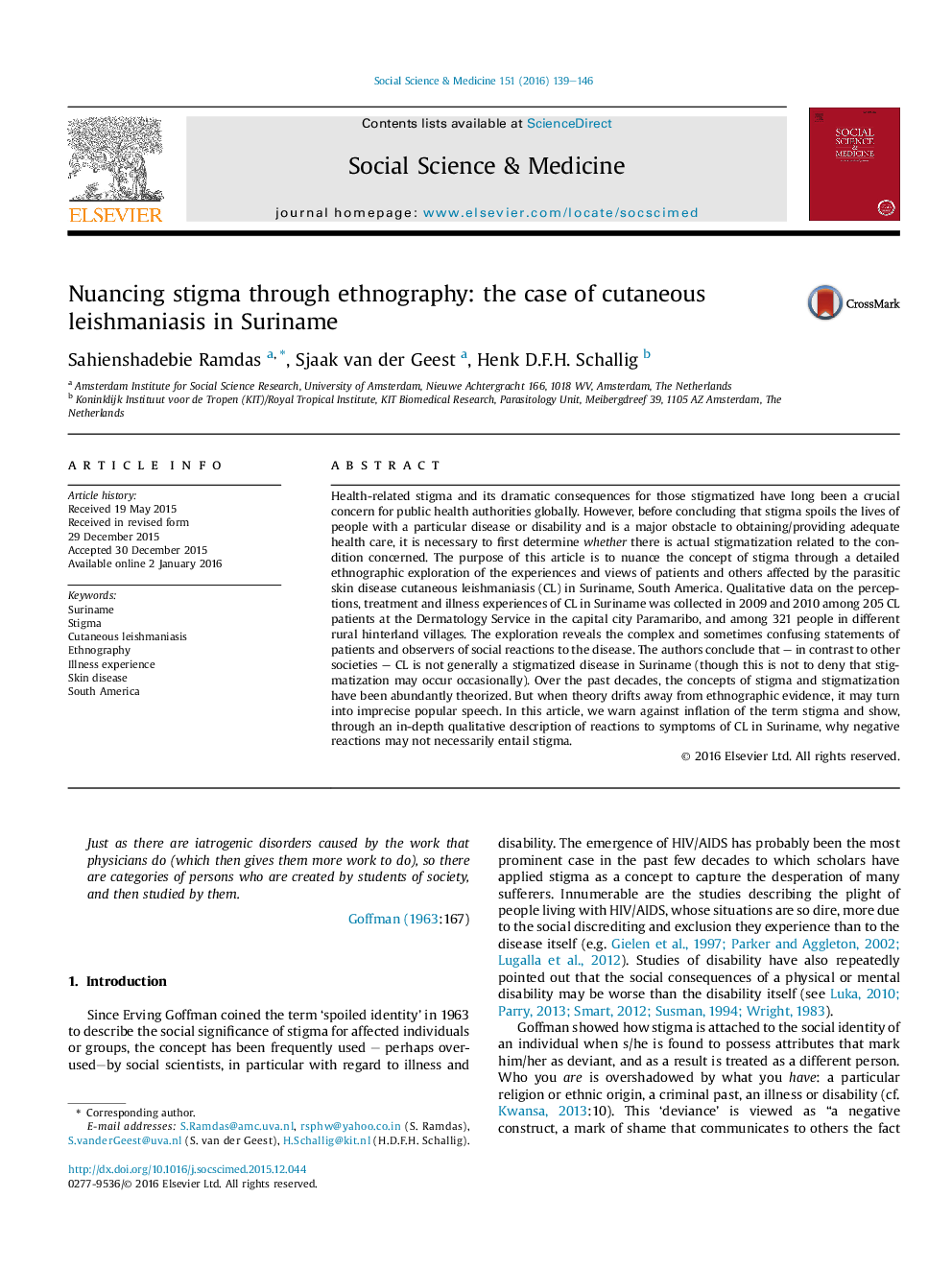| Article ID | Journal | Published Year | Pages | File Type |
|---|---|---|---|---|
| 7330722 | Social Science & Medicine | 2016 | 8 Pages |
Abstract
Health-related stigma and its dramatic consequences for those stigmatized have long been a crucial concern for public health authorities globally. However, before concluding that stigma spoils the lives of people with a particular disease or disability and is a major obstacle to obtaining/providing adequate health care, it is necessary to first determine whether there is actual stigmatization related to the condition concerned. The purpose of this article is to nuance the concept of stigma through a detailed ethnographic exploration of the experiences and views of patients and others affected by the parasitic skin disease cutaneous leishmaniasis (CL) in Suriname, South America. Qualitative data on the perceptions, treatment and illness experiences of CL in Suriname was collected in 2009 and 2010 among 205 CL patients at the Dermatology Service in the capital city Paramaribo, and among 321 people in different rural hinterland villages. The exploration reveals the complex and sometimes confusing statements of patients and observers of social reactions to the disease. The authors conclude that - in contrast to other societies - CL is not generally a stigmatized disease in Suriname (though this is not to deny that stigmatization may occur occasionally). Over the past decades, the concepts of stigma and stigmatization have been abundantly theorized. But when theory drifts away from ethnographic evidence, it may turn into imprecise popular speech. In this article, we warn against inflation of the term stigma and show, through an in-depth qualitative description of reactions to symptoms of CL in Suriname, why negative reactions may not necessarily entail stigma.
Keywords
Related Topics
Health Sciences
Medicine and Dentistry
Public Health and Health Policy
Authors
Sahienshadebie Ramdas, Sjaak van der Geest, Henk D.F.H. Schallig,
